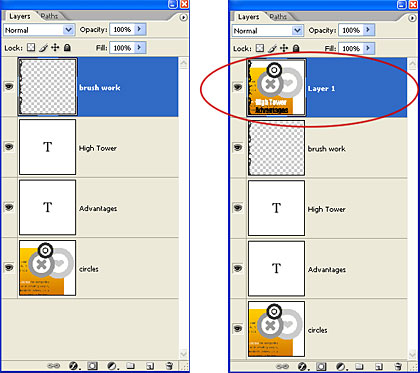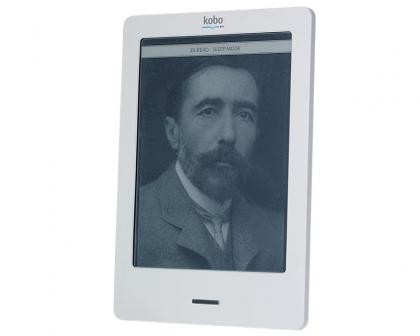Taking steps toward better health often feels overwhelming, especially when juggling work, family, and the daily responsibilities that fill our schedules. Many people want to feel more energetic, sleep better, and move with ease, yet they struggle to know where to begin in a way that feels realistic. A personal health plan becomes helpful when it fits into everyday life rather than demanding dramatic changes or strict routines. Building a plan centered on small, consistent improvements allows you to progress at a pace that feels manageable and encouraging instead of pressured. In this article, you will learn how to create a clear and sustainable approach to improving your well-being.

Define Your Personal Health Vision and Goals
Creating a personal health vision starts with understanding how you want to feel in your daily life rather than focusing only on numbers or appearance. Many people find it useful to think about moments like climbing stairs without getting winded, waking up refreshed, or having enough energy to enjoy hobbies after work. Setting goals works best when they are specific and flexible, allowing room for progress rather than perfection. You might choose goals like drinking more water, walking a certain number of steps, or reducing stress through short breaks during the day. When your goals reflect your real lifestyle, you are more likely to stay committed and encouraged.
The Four Pillars of Your Health Plan
Nutrition: Building a Balanced Plate
Eating well does not need to involve complicated recipes or restrictive rules, especially for people who already feel stretched for time. Starting with simple habits like adding more vegetables, choosing whole foods more often, and reducing sugary snacks can create noticeable improvements in energy. Many find success in preparing small portions ahead of time or keeping healthy snacks nearby to avoid rushed choices. Listening to your body’s hunger and fullness cues helps you understand what supports you rather than relying solely on external advice. Over time, these steady adjustments build a nourishing foundation that feels natural rather than forced.
Fitness: Finding Movement You Enjoy
Exercise becomes sustainable when it feels enjoyable instead of like a punishment or obligation. Some people prefer walking in the neighborhood, while others like dancing in the living room or doing gentle stretching before bed. Choosing movement that fits your schedule and personality helps you stay consistent, even on busy days. Paying attention to how activity improves mood, sleep, and energy makes it easier to stay motivated instead of relying on willpower alone. When the focus is enjoyment rather than intensity, fitness becomes a supportive part of everyday life.
Sleep: The Foundation of Recovery
Quality sleep allows your body and mind to recover, yet many people overlook how essential it is for overall health. Creating a calming bedtime routine, dimming lights, and limiting late evening screen time all help prepare the body for rest. Going to bed and waking up at similar times each day teaches your internal clock to stay steady, improving sleep depth and morning alertness. You may notice that better sleep makes healthy eating and regular exercise feel easier because your body has more energy to participate. Treating sleep as a daily priority strengthens all other parts of your health plan.
Mental Wellness: Managing Stress and Mindset
Mental well-being influences how you eat, move, and sleep, making it a vital part of a personal health plan. Simple practices like short breathing exercises, journaling, or spending quiet time away from screens can reduce stress and improve clarity. Many people underestimate how much daily tension builds up through work pressures, family needs, and constant digital connection. Paying attention to emotional signals helps prevent burnout and encourages a more balanced mindset. When mental wellness becomes part of your routine, you feel more grounded and able to handle challenges with patience.
Create Your Actionable Weekly Routine
Designing a Simple Meal Planning System
A weekly routine works best when it feels supportive rather than restrictive or complicated. Planning a few meals ahead of time reduces last-minute decisions and helps you choose foods that align with your goals. Using leftovers, repeating favorite recipes, and preparing ingredients in batches can save time and reduce stress around eating. Many people enjoy writing a short list or keeping a note on their phone to stay organized throughout the week. When meal planning feels flexible and realistic, it becomes a habit that strengthens your health plan.
Blocking Time for Exercise and Sleep
Scheduling time for movement and rest helps ensure they do not get pushed aside by daily obligations. Even short sessions of activity or consistent bedtime reminders can make meaningful improvements when practiced regularly. Some people like to combine exercise with enjoyable routines, such as listening to music or podcasts during walks. Blocking time for sleep also supports better recovery because your body learns when to wind down and restore itself. Making these commitments part of your weekly rhythm reinforces the pillars of your health plan.
Track Progress and Stay Motivated
Tracking progress helps individuals notice changes that might otherwise go unnoticed, such as improved mood, better sleep, or steadier energy. Some prefer journaling, while others opt for digital tools that provide clear feedback on habits and patterns. Many find that monitoring small indicators encourages consistency by revealing how minor choices contribute to significant results over time. For those seeking gentle support, a Huawei Watch can track key health metrics like heart rate, sleep, and ECG. The ability to monitor my health with such clarity provides a sense of control and motivation, free from external pressure or comparison.

Review, Adjust, and Maintain Your Plan
A health plan remains effective when it adapts as your needs, routines, and energy levels change over time. Reviewing your progress every few weeks allows you to celebrate improvements and identify areas that need more support. Adjusting your goals keeps them realistic and prevents frustration when life becomes busier or circumstances shift. Maintaining the plan becomes easier when it fits naturally into your lifestyle rather than requiring dramatic effort. Your long-term success comes from flexibility, patience, and continued self-awareness.
Conclusion
A personal health management plan gives you direction, structure, and encouragement as you work toward feeling better each day. Small, steady habits help you build confidence and create meaningful change that lasts beyond short-term motivation. With thoughtful goals, balanced routines, and ongoing reflection, you develop a healthier lifestyle that supports you through different life stages. The journey is ongoing, but each step brings more clarity, comfort, and resilience. By committing to yourself with kindness, you move toward lifelong well-being.







